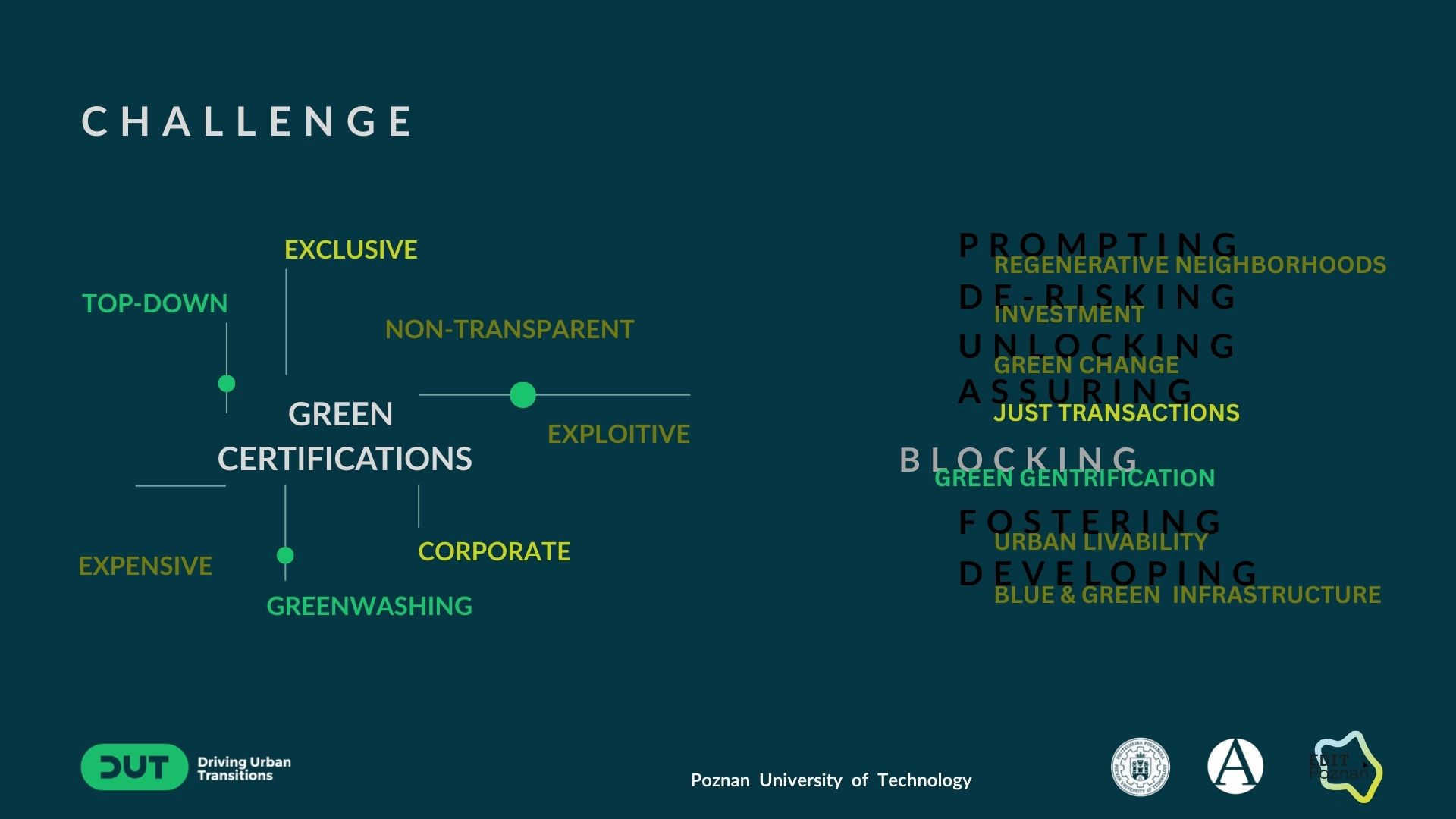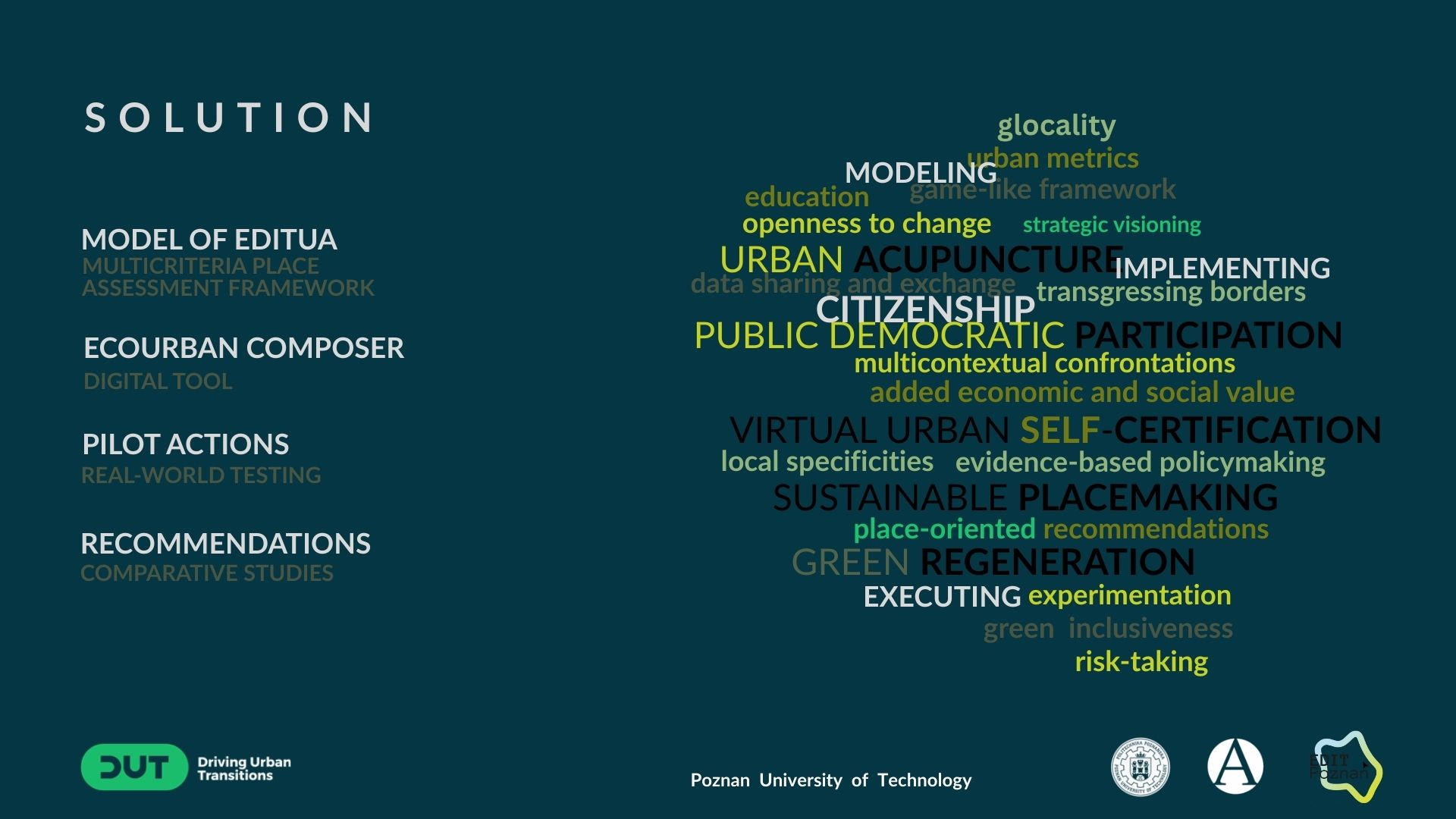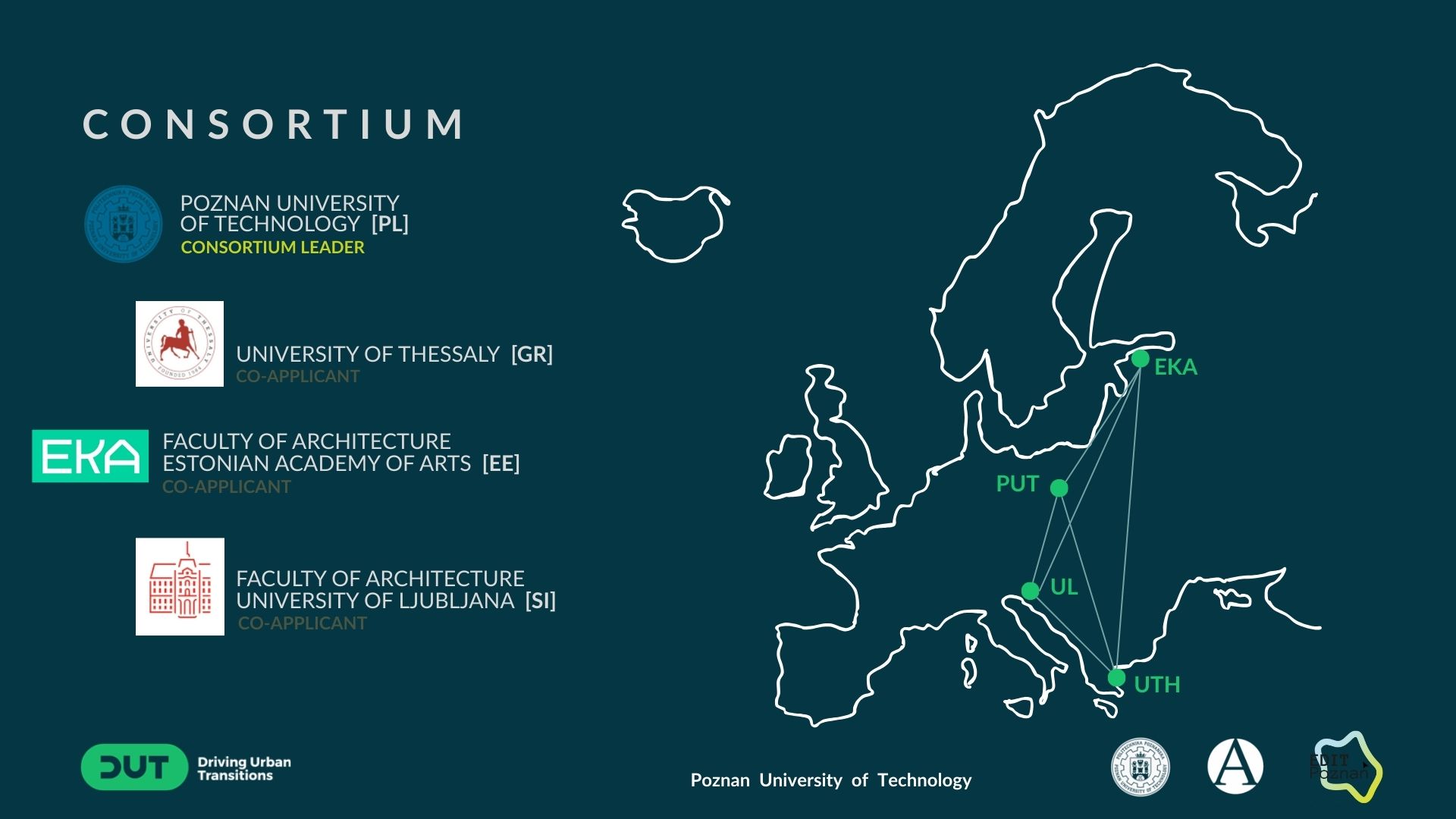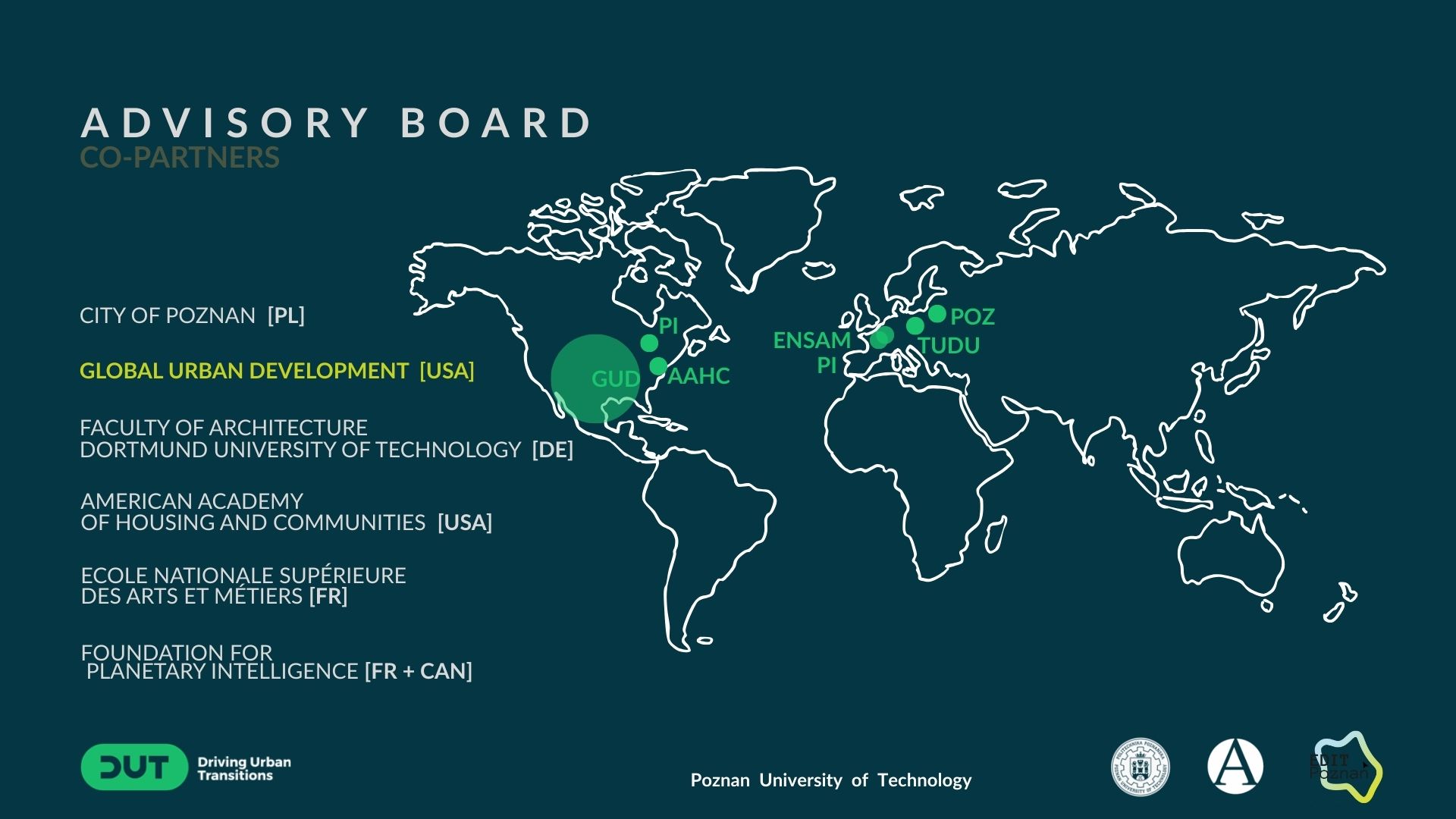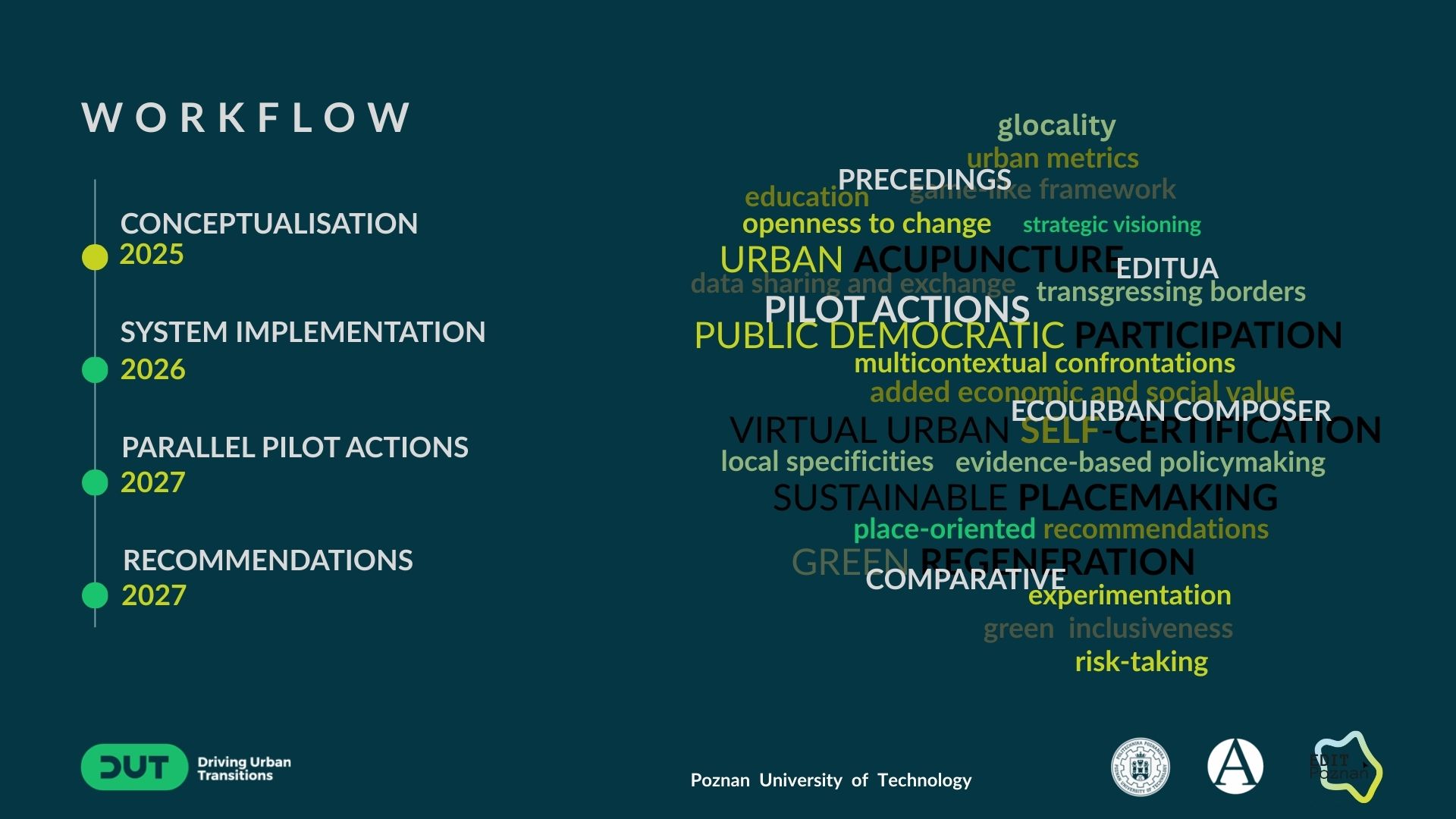EDITUA project stems from a diagnosis of the impacts of existing commercial certification programs. In practice, these schemes concentrate power with large developers and corporations, leaving ordinary citizens disarmed in shaping the green change of their own neighborhoods. Certification programs are often exclusive, non-transparent, exploitative, corporate, expensive and top-down — and thus prone to greenwashing. EDITUA addresses this by promoting regenerative neighborhoods through measures that secure a just transaction and block green gentrification. The project aims to unlock green change by offering free, practical solutions and open tools that empower every resident to participate in fostering urban livability. By redistributing information, capacity and decision-making to local communities, EDITUA seeks equitable, durable and community-led pathways toward healthier, more resilient urban neighborhoods. Through co-design workshops, participatory audits, and accessible toolkits, the project builds local skills, fosters stewardship, and creates replicable models for just, low-carbon urban transformation, across diverse contexts.
The project addresses the identified challenge with several concrete solutions. In the theoretical work, we will develop a comprehensive EDITUA model: an overarching scheme for a data-driven decision-making process based on a predefined library of interventions and evaluations that consider explicit criteria and all engaged stakeholders. Second, we will build and iteratively develop a digital tool — EcoUrbanComposer — combining simulation and evaluation engines within an approachable, game-like graphical user interface. With these tools, consortium partners will run pilot actions in multiple cities to test the tool’s applicability and its simulation and evaluation capacities. Lessons learned will be synthesized through comparative studies and compiled into an EDITUA handbook of good practices and policy recommendations. The handbook will translate pilot insights into practical guidance, templates and metrics to support replication, scalability and community-led urban regeneration across diverse contexts. The project prioritises inclusivity, transparency and measurable environmental and social outcomes across scales.
The consortium is led by Poznan University of Technology (PUT), which coordinates the project, manages quality assurance, directs Polish pilot actions, and steers development of the EcoUrban Composer digital tool. The University of Ljubljana (UL) is the consortium’s key asset in theoretical framework and — together with PUT — provides the largest contribution to the project’s basic research agenda and transdisciplinary capacity. The Faculty of Architecture at the University of Thessaly (UTH) brings expertise in Mediterranean urbanism, participatory design and heritage recognition, with strong competence in archaeological sites, while collaborating to generalise methods across contexts. The Estonian Academy of Arts (EKA) is a major contributor to EcoUrban Composer development (building on Urbanist AI experience) and supplies ecological guidance and experimental design approaches. Together, the partners will co-design the digital tool, run pilots in varied real-world contexts, share curricula, and produce policy-relevant guidance that fosters biodiversity, social inclusion and civic ownership.
The Advisory Board comprises six institutional members: City of Poznan (PL), Global Urban Development (USA), Faculty of Architecture, Dortmund University of Technology (DE), American Academy of Housing and Communities (USA), École Nationale Supérieure des Arts et Métiers (FR), and the Foundation for Planetary Intelligence (FR + CAN). They form the project’s quality assurance body, whose competence safeguards exchange of state-of-the-art knowledge and networking. It fosters cross-sector dialogue between academia, municipal administration, and NGOs, and offers independent oversight throughout project lifecycle. It will review methodologies, monitor impact, advise on standards, and support dissemination. Two members are distinguished: Global Urban Development (GUD), which consolidated the EDIT group and provides strategic leadership on scalability; and the City of Poznan, which assures practicable transferability of project outputs into real-world municipal conditions. Together the Board strengthens accountability, deepens stakeholder links, accelerates uptake of EcoUrban Composer solutions at local and international levels, and ensures valorisation.
The EDITUA project will deliver a practical, scalable instrument that operates on three integrated levels—technological, procedural and social—to catalyse community-led green placemaking. Core results include the EcoUrbanComposer digital tool and an operational protocol that together enable inclusive, game-like co-design, data-driven decision-making and transparent evaluation. Through pilots in Poznań (PL), Tallinn (EE) and Volos/Larisa (GR), we expect measurable environmental and social gains: increased local participation, improved stewardship of underused public space, enhanced urban biodiversity, and demonstrable reductions in local carbon and resource use. The project will produce a comparative handbook of validated practices, policy recommendations and open-source toolkits to support uptake and replication. Benefits will reach residents, municipalities and planners by strengthening local capacities, reducing the risk of green gentrification, and providing governance-ready metrics to guide equitable, resilient and affordable urban regeneration at scale. Long-term impacts include strengthened cross-city networks, new stewardship roles and meaningful evidence to influence policy and funding.
